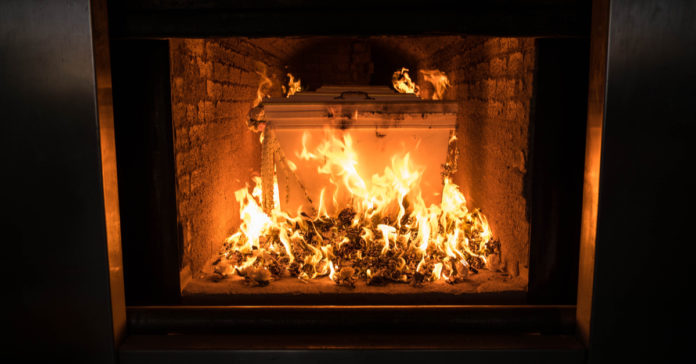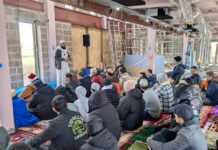
The government still retains the power to cremate coronavirus victims, according to the new Coronavirus Bill, but only as a last resort and after taking into account the religious views of families.
In an amendment to the Coronavirus Bill, the government states local and national authorities must have regard to the desirability of disposing of a dead person’s body or other remains “in accordance with the person’s wishes, if known, or “otherwise in a way that appears consistent with the person’s religion or beliefs, if known.”
This means that the authorities retain the power to cremate deceased bodies although they must show regard to a person’s religion or beliefs first. Contrary to the wishes of Muslims and Jews, it does not constitute an absolute protection of a person does not wish to be cremated during the current crisis.
In recent days there have been increasing concerns in the Muslim community that dead Muslim coronavirus victims would be cremated to prevent the risk of infection spreading.
A petition on Change.org to protect Muslim burials during the coronavirus pandemic has now garnered over 200,000 signatures.
But despite the Bill’s wording, in Parliament yesterday the Paymaster General, Penny Morduant, appeared to rule out cremations although her words do not constitute law.
She said: “We have brought forward an amendment that gives those guarantees with regard to someone’s beliefs, religion or wishes. In addition, I stress that it has never been the case — there has never been any doubt about this — that somebody who wished to be buried would have to be cremated. There is no public health reason or capacity reason why that should be the case.
Subscribe to our newsletter and stay updated on the latest news and updates from around the Muslim world!
“We have worked from the off with all faiths to produce the guidelines, and the amendment was produced through consultation. I see no circumstance — and it certainly would not relate to these powers — in which somebody would be cremated against their wishes. I do not think I can give any more guarantees than that. That is absolutely not the intent of the policy and it is certainly not anything to do with the practice.”
Reacting to Morduant’s guarantees, Naz Shah MP said: “Government amendment 52 recognises those rights and provides legal protection for the deceased of Muslim and Jewish communities, requiring their wishes and faith to be shown due regard, to prevent cremation. In some ways, it is clearer and goes further than my amendment. It provides protection to those from faiths where people choose to be buried and to those who choose to be cremated…
“Death is a sensitive time for everyone, and losing a loved one is difficult for us all. We all want dignity in death for our loved ones, and the idea that, in extreme circumstances, when capacity issues arise, the deceased would have to be cremated was something hard to bear, especially for those from the Muslim and Jewish faiths, which strongly oppose cremation. I further thank the Minister for clarifying in the assurance and the guarantees that she has just given that nobody will be cremated against their wishes.”
The Muslim Council of Britain also thanked the government for its changes on burial measures in the COVID-19 emergency legislation.
Commenting, Harun Khan, Secretary General of the MCB, said: “The Muslim Council of Britain warmly welcomes the UK Government’s amendment which recognises the importance of ensuring faith communities are able to bury the deceased instead of cremating in the event of significant deaths due to Coronavirus.
“During this national crisis, we are appreciative of this reassurance by our government and its important efforts to listen to and worth constructively with faith communities.
“We pay tribute to the hard work of Naz Shah, MP for Bradford West, for raising the issue alongside others, and the All-Party Parliamentary Group on British Muslims for mobilising support for this important change across the House, and we also thank those MPs who support the amendment.”
However, advocacy group MEND struck a note of caution.
It said: “Whilst all this is extremely encouraging, it should still be noted that the legislation technically could allow the possibility of cremation, in very extreme circumstances, hence the Bill may not be an absolute exemption for Muslim and Jewish communities as we hoped. It is however a very positive development and insha’Allah will achieve the objective at hand.”
Others were more sceptical of the seeming declaration of victory.
Solicitor Nasir Hafezi, who runs the Community Legal Education YouTube channel, said the amendment is only a procedural step for a designated local authority to take before they decide to cremate.
He encouraged people to continue to campaign and seek proper protection against forced cremations by contacting their MPs and the House of Lords.

















